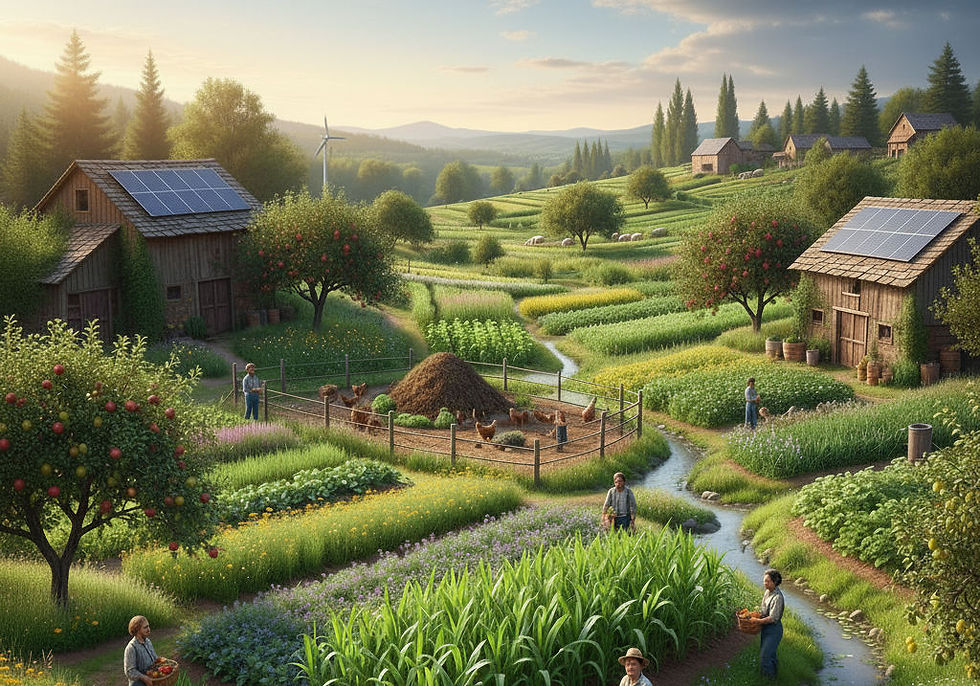Secure Your Food Future: Why Agroecology Matters More Than Ever
- Ron Frazer
- Nov 13, 2025
- 2 min read

Agroecology is more than just a set of agricultural practices; it is a holistic approach that applies ecological concepts and principles to the design and management of sustainable agricultural systems. It integrates plants, animals, humans, and the environment into a cohesive whole, emphasizing biodiversity, recycling, and synergy. While once considered a niche movement, agroecology is now increasingly accepted and promoted by major national and international organizations as a key solution to the interconnected challenges of food security, climate change, and environmental degradation.
What is Agroecology? The Main Principles
Agroecology goes beyond "organic" or "sustainable" farming by viewing the entire agricultural landscape as an ecosystem. It is simultaneously a science, a set of practices, and a social movement.
As a Science: It is the integrative study of the ecology of the entire food system.
As a Set of Practices: It involves implementing on-farm techniques that mimic natural processes.
As a Social Movement: It seeks to transform food systems to be more just, equitable, and responsive to the needs of farmers and communities.
While different frameworks exist, the core principles of agroecology, as widely recognized by institutions like the Food and Agriculture Organization (FAO) of the UN, can be summarized as follows:
Recycling & Closing Nutrient Loops: Prioritizes the use of on-farm resources (e.g., compost, manure, crop residues) to reduce external inputs and waste.
Biodiversity & Synergy: Enhances the diversity of species (crops, livestock, trees, beneficial insects) and genetic resources. This diversity creates synergies where different elements of the system support each other.
Soil Health & Animal Health: Focuses on building healthy, living soils as the foundation of the system. Healthy soils lead to healthy plants, which in turn support healthy animals and people.
Efficiency & Reduced Input Dependency: By designing resilient systems, agroecology aims to use less external energy, water, and chemicals. It leverages ecological processes to control pests, pollinate crops, and build fertility, making the farm more self-sufficient.
Resilience & Adaptation: Diverse agroecological systems are more resilient to climate shocks (droughts, floods), economic volatility, and pest outbreaks. They can adapt and recover more easily than monocultures.
Co-creation & Sharing of Knowledge: Combines traditional, indigenous farmer knowledge with modern agricultural science. Solutions are developed locally through participatory processes, rather than being imposed from the top down.
Social Values & Fairness: Supports decent livelihoods for farmers and food system workers, promotes gender equity, and strengthens local food systems and community sovereignty.
Connectivity & Circular Economy: Builds shorter, more transparent food chains that connect producers and consumers directly (e.g., farmers' markets, Community Supported Agriculture), reducing the power of intermediaries.
Land & Resource Governance: Advocates for fair access to land, water, and seeds, and for governance systems that support agroecological transitions.
Participation & Democracy: Empowers farmers and communities to be central actors in the decisions that affect their food systems.



Comments